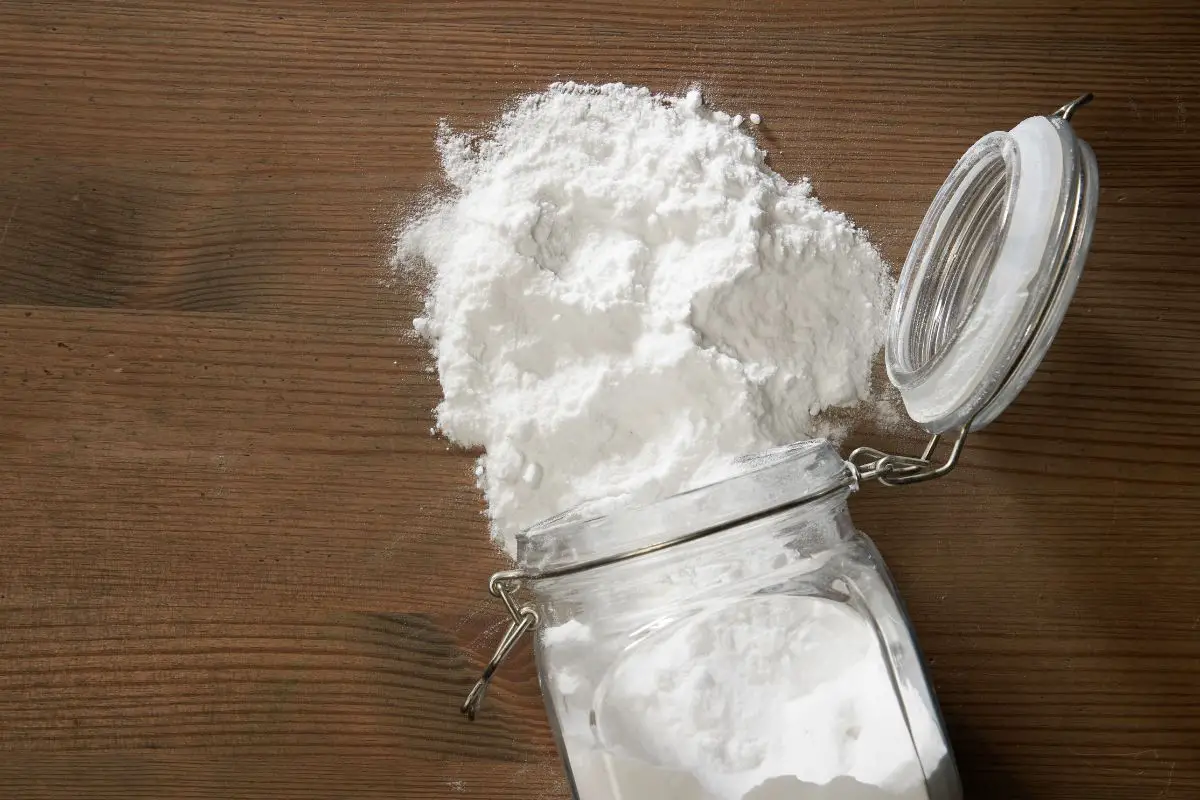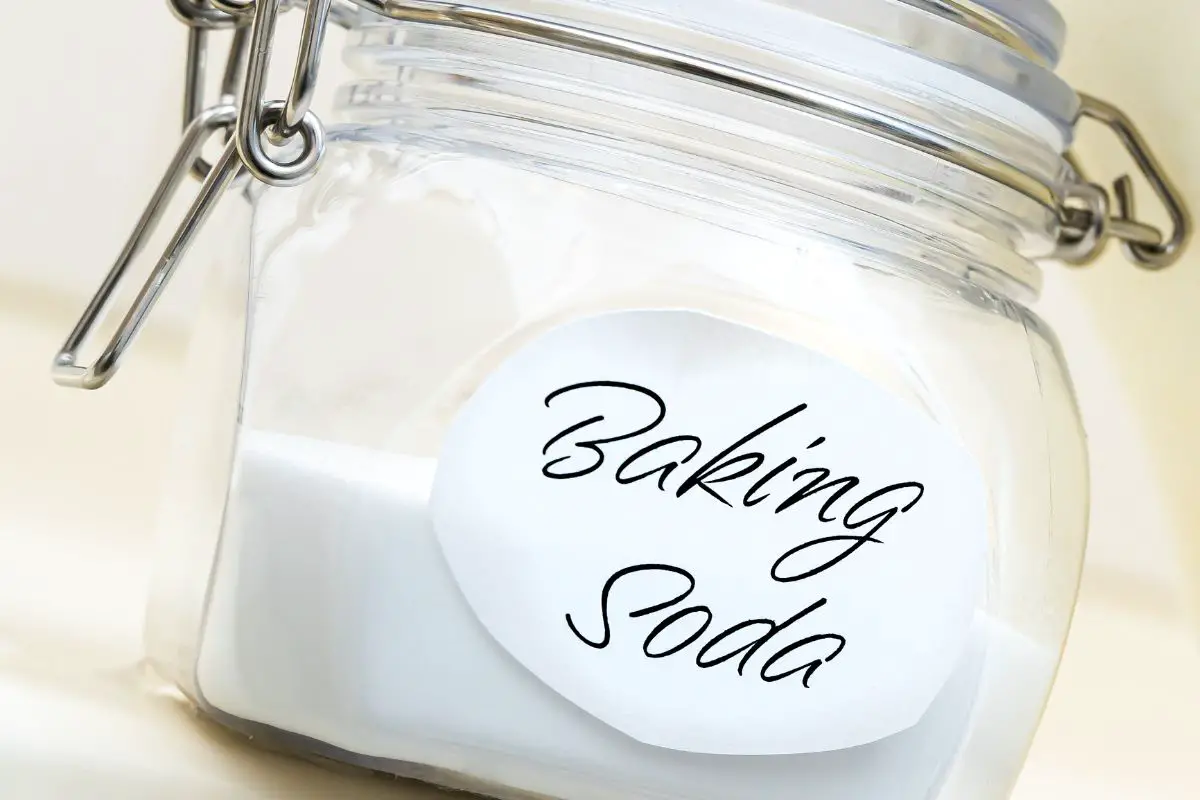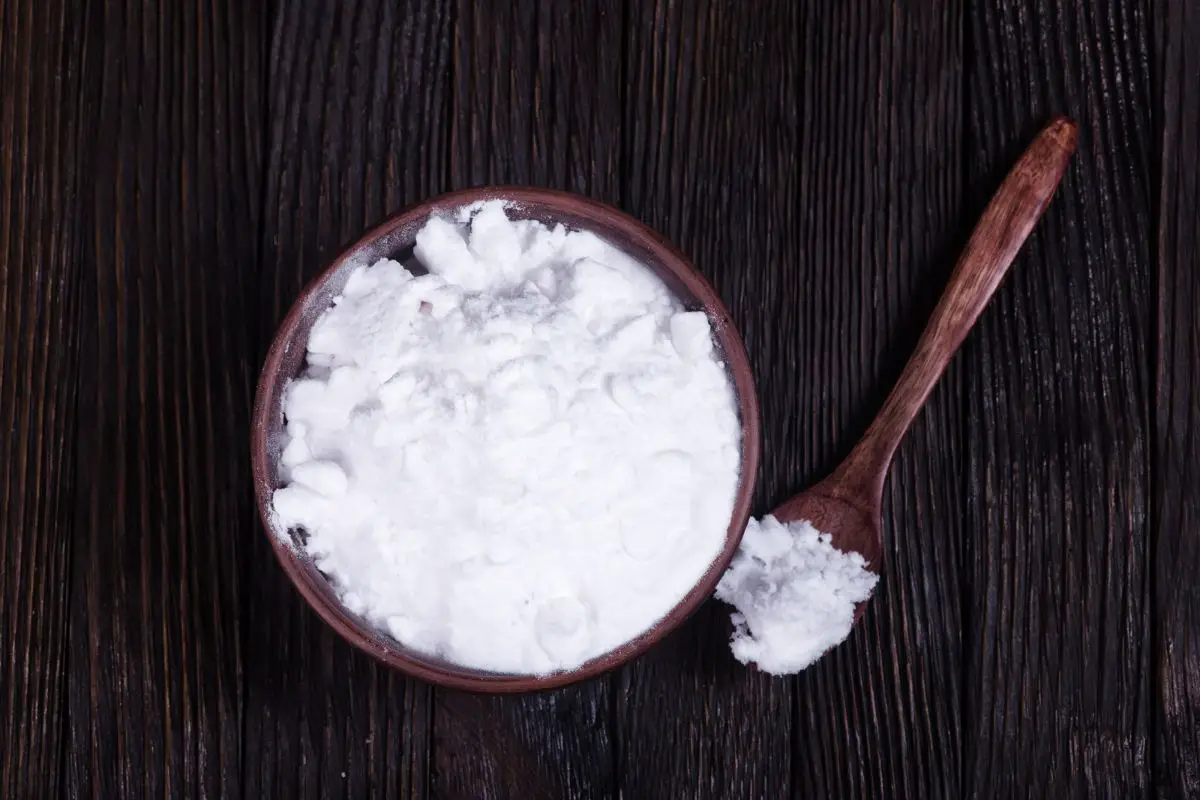In the world of coffee lovers, the quest for the perfect cup of joe is an ongoing journey. While some may prefer a bold and robust flavor, others strive for a smoother and less acidic taste. Enter baking soda, an unexpected ally in the pursuit of coffee perfection.

Adding a pinch of this humble ingredient to your morning brew may seem counterintuitive, but its scientific properties can have a profound impact on your cup of coffee. In this article, we will explore the science behind using baking soda in coffee, providing tips for incorporating it into your routine, and discussing the benefits and potential pitfalls of this practice.
Additionally, we will delve into other uses of baking soda in coffee preparation and share personal experiences to guide you on your coffee-enhancing journey. So, grab your favorite mug, and let’s embark on this enlightening exploration of the fascinating role baking soda can play in your daily caffeine fix.
Key Takeaways
- Baking soda can improve the flavor of coffee by neutralizing acidity and reducing bitterness
- Excessive use of baking soda can result in an unpleasant taste
- Mixing baking soda well into the coffee is important for even distribution
- Individuals with certain medical conditions should consult a healthcare professional before using baking soda in coffee
The Science Behind Using Baking Soda in Coffee
The use of baking soda in coffee is supported by scientific evidence, demonstrating its ability to neutralize acidity and improve the overall flavor of the beverage.
When coffee is brewed, it releases certain compounds that contribute to its natural acidity. This acidity can be undesirable for some individuals, as it may cause stomach discomfort or heartburn. However, adding a small amount of baking soda to coffee can help neutralize these acidic compounds, making the beverage more gentle on the stomach.
Baking soda, also known as sodium bicarbonate, is a basic compound that acts as a buffer, meaning it can help regulate the pH level of a solution. When added to coffee, baking soda reacts with the acidic compounds, such as chlorogenic acid, present in the beverage. This reaction results in the formation of water, carbon dioxide, and a less acidic compound, thereby reducing the overall acidity of the coffee.
In addition to its ability to neutralize acidity, baking soda can also enhance the flavor of coffee. The alkaline nature of baking soda can reduce the bitterness and improve the smoothness of the beverage. This can be particularly beneficial for individuals who prefer a milder taste or have sensitivity to bitter flavors.
To incorporate baking soda into your coffee, it is recommended to start with a small amount, such as a pinch or 1/8 teaspoon, and adjust according to personal preference. It is important to note that excessive use of baking soda may result in an unpleasant taste or texture. Therefore, it is advisable to experiment and find the right balance that suits individual taste preferences.
Tips for Incorporating Baking Soda into Your Coffee
One interesting statistic is that incorporating a small amount of baking soda into your morning beverage can help reduce the acidity levels, resulting in a smoother and less bitter taste. Baking soda, also known as sodium bicarbonate, is a natural alkaline substance that can neutralize the acidic properties of coffee. It works by reacting with the acidic compounds in coffee, such as chlorogenic acid, to form water, carbon dioxide, and a salt. This chemical reaction helps to decrease the overall acidity of the coffee, making it more enjoyable to drink.
When incorporating baking soda into your coffee, it is important to remember a few key tips. First, use a small amount of baking soda, as too much can result in an unpleasant taste. Start with just a pinch and adjust according to your preference. Second, mix the baking soda well into your coffee to ensure even distribution. Lastly, be mindful of any potential health concerns associated with high sodium intake. While baking soda is generally safe to consume in small amounts, individuals with certain medical conditions, such as hypertension or kidney disease, should consult with a healthcare professional before incorporating it into their coffee routine.
Incorporating baking soda into your coffee can help reduce acidity and create a smoother taste. However, it is important to use it in moderation and be aware of any potential health concerns. Moving forward, we will explore the benefits of adding baking soda to your coffee.
Benefits of Adding Baking Soda to Your Coffee
Adding baking soda to your morning beverage can enhance the flavor profile and improve the overall drinking experience. Here are three benefits of incorporating baking soda into your coffee:
- Reduced bitterness: Baking soda acts as a natural alkaline compound that can help neutralize the acidity in coffee. This can result in a smoother and less bitter taste, making your cup of joe more enjoyable.
- Digestive aid: Baking soda has been known to aid in digestion by regulating stomach pH levels. Adding a pinch to your coffee may help alleviate any discomfort or acid reflux that can be caused by the acidity of the beverage.
- Antioxidant boost: Coffee is already a rich source of antioxidants, and when combined with baking soda, it can provide an even greater antioxidant boost. Baking soda can help preserve the beneficial compounds present in coffee, allowing you to reap the maximum health benefits.
By understanding the benefits of adding baking soda to your coffee, you can make a more informed decision about incorporating it into your routine. However, it is essential to be cautious and avoid common mistakes that can negatively impact your coffee experience.
Common Mistakes to Avoid When Using Baking Soda in Coffee
When using baking soda in coffee, it is important to avoid adding too much baking soda as it can lead to an unpleasant taste and texture.
Adjusting the brewing parameters is also crucial as the addition of baking soda can alter the acidity and extraction process of the coffee.
Furthermore, neglecting the quality of coffee beans can result in a subpar taste, even with the addition of baking soda.
Adding Too Much Baking Soda

Excessive use of baking soda in coffee can result in an unpleasant and overpowering taste that may leave a lingering bitter aftertaste. It is important to add the right amount of baking soda to avoid ruining the flavor of your coffee.
Here are some common mistakes to avoid when using baking soda in coffee:
- Adding too much baking soda can make your coffee taste soapy and bitter.
- Using a teaspoon or tablespoon measurement instead of a pinch can lead to an excessive amount of baking soda.
- Failing to dissolve the baking soda thoroughly can result in uneven distribution and an inconsistent taste.
- Neglecting to adjust the brewing parameters, such as the amount of coffee grounds and water, to account for the added baking soda can throw off the balance of flavors.
- Not experimenting with smaller quantities of baking soda before adding more can help you find the perfect amount for your taste preferences.
By avoiding these mistakes, you can ensure a better coffee experience without overpowering flavors.
Transitioning into the next section, let’s explore the importance of adjusting brewing parameters when using baking soda.
Not Adjusting Brewing Parameters
One crucial aspect to consider is the necessity of modifying the brewing parameters to achieve optimal results when utilizing baking soda. Adjusting the brewing parameters, such as water temperature, brewing time, and coffee-to-water ratio, is essential to ensure a balanced and flavorful cup of coffee. Failure to adjust these parameters can result in an unpleasant taste and potentially compromise the safety of the beverage. For example, using too high a water temperature can lead to over-extraction and a bitter taste, while using too low a temperature may result in under-extraction and a weak flavor. Similarly, not adjusting the coffee-to-water ratio can lead to an imbalanced taste. By carefully modifying these brewing parameters, coffee enthusiasts can enhance their overall brewing experience. Neglecting the quality of coffee beans can further diminish the desired outcome.
Neglecting the Quality of Coffee Beans
Neglecting the quality of coffee beans is another common mistake that can hinder the effectiveness of using baking soda in coffee preparation. Using low-quality or stale coffee beans can result in a lackluster flavor profile and negate the efforts of adding baking soda to the brew.
It is essential to ensure that the coffee beans used are fresh and of good quality to achieve the desired results. Freshly roasted beans contain higher levels of aromatic compounds that contribute to a rich and flavorful cup of coffee. Additionally, selecting beans that are suited to one’s taste preferences can greatly enhance the overall coffee experience.
By paying attention to the quality of coffee beans, one can maximize the benefits of using baking soda in coffee preparation and create a more enjoyable brewing experience.
Moving forward, let’s explore other uses of baking soda in coffee preparation.
Other Uses of Baking Soda in Coffee Preparation

Another application of baking soda in coffee preparation is its ability to reduce the acidity of the beverage, resulting in a smoother and less bitter taste. When added to coffee, baking soda acts as a natural alkaline compound, neutralizing the acids present in the beans. This can be particularly beneficial for individuals who experience digestive issues or have sensitive stomachs.
Here are some other uses of baking soda in coffee preparation:
- Balancing flavors: Baking soda can help balance the flavors in coffee by reducing the acidity. This can result in a more enjoyable and well-rounded taste for those who find acidic coffee unpleasant.
- Reducing bitterness: Baking soda can also help reduce the bitterness that is often associated with over-extracted or low-quality coffee. By neutralizing the acids that contribute to bitterness, baking soda can create a smoother and more palatable brew.
- Enhancing aroma: In addition to reducing acidity and bitterness, baking soda can also enhance the aroma of coffee. This can add depth and complexity to the overall coffee experience.
Baking soda offers various benefits when used in coffee preparation, including reducing acidity, decreasing bitterness, and enhancing aroma. These properties can contribute to a more enjoyable and flavorful cup of coffee.
In the next section, we will explore final thoughts and personal experiences with using baking soda in coffee.
Final Thoughts and Personal Experiences with Baking Soda in Coffee
Concluding the exploration of the effects of baking soda in coffee, it is worthwhile to consider the culmination of personal experiences and final thoughts on this subject. While baking soda can be used as a remedy for certain coffee-related issues, such as reducing acidity and bitterness, it is important to exercise caution when incorporating it into your daily coffee routine.
Personal experiences vary when it comes to using baking soda in coffee. Some individuals have reported positive outcomes, such as a smoother and less acidic taste. They believe that baking soda helps in neutralizing the acidity of coffee and enhancing its flavor.
However, others have not observed significant improvements or have even found the addition of baking soda to be unpleasant, affecting the overall taste profile of their coffee.
It is important to note that while baking soda can be used as a home remedy, it is not a universally recommended practice. Its high sodium content may not be suitable for individuals with certain health conditions, such as hypertension or kidney issues. Additionally, excessive use of baking soda may result in an alkaline imbalance in the body.
While some individuals have found success in using baking soda in their coffee, it is important to approach this practice with caution. It is advisable to consult with a healthcare professional or nutritionist before incorporating baking soda into your coffee routine, especially if you have any underlying health conditions.
Frequently Asked Questions
How much baking soda should I add to my coffee?
Adding baking soda to coffee can alter its taste and acidity. It is recommended to add a very small amount, such as a pinch, to avoid overwhelming the flavor. However, it is advisable to consult a healthcare professional before making any dietary changes.
Can I use baking powder instead of baking soda in coffee?
Using baking powder instead of baking soda in coffee is not recommended. Baking powder contains additional ingredients like acids, which may alter the taste and safety of the beverage. Stick to using baking soda for optimal results.
Can baking soda in coffee help with heartburn or acid reflux?
Baking soda can help alleviate heartburn or acid reflux due to its alkaline nature. However, it is important to note that excessive intake may lead to electrolyte imbalances and other health complications. Consult a healthcare professional for guidance.
Does using baking soda in coffee affect the taste?
The addition of baking soda to coffee may alter its taste due to the alkaline properties of baking soda. The resulting flavor may be described as slightly bitter or metallic, which may not be preferred by some individuals.
Is it safe to consume baking soda in coffee on a daily basis?
Daily consumption of baking soda in coffee may have potential health risks due to its high sodium content. It is advisable to consult with a healthcare professional to determine the safety and appropriate usage of baking soda in one’s diet.
Conclusion
In conclusion, the addition of baking soda to coffee offers a scientific approach to enhancing your morning brew. By neutralizing the acidity, baking soda creates a smoother and less bitter taste, allowing the true flavors of the coffee to shine through.
Incorporating baking soda into your coffee routine can bring about numerous benefits, such as improved digestion and reduced tooth sensitivity. However, it is crucial to avoid common mistakes, such as using too much baking soda, as it can alter the taste.
Overall, exploring the world of baking soda in coffee can unveil a whole new realm of aromatic and flavorful experiences.
Also read: